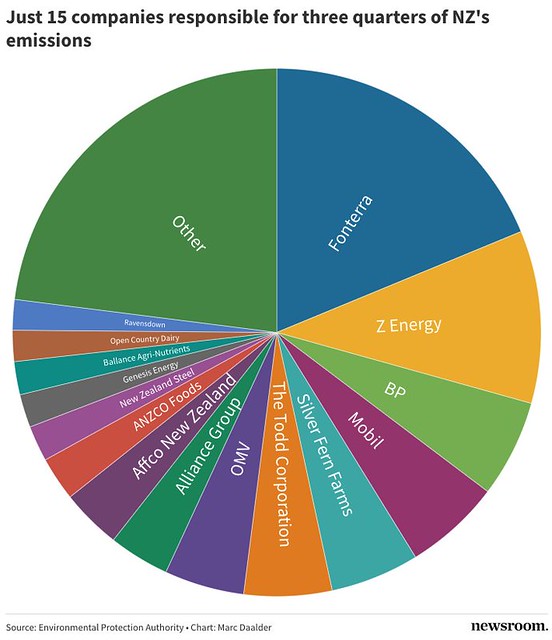The obvious question for climate change policy is how do we kill those polluting companies and destroy the business models which cause their pollution. Here's some suggestions:
- We can kill Fonterra and Open Country Dairy by cutting the size of the dairy industry. Making them pay the full price of their emissions should help (especially if you believe farmers' claims that doing so will make them all go bankrupt), but we also need to directly cut cow numbers by legislation and the RMA. Phasing out coal and gas and forcing electrification for low-temperature heat will also help, but its the cut in cow numbers that will really make a difference. (Farmers can avoid the economic impact of this by exporting higher-value products, rather than a low-value bulk commodity).
- We can kill Z Energy, BP, and Mobil by electrifying cars and investing in public and active transport. We can kill their residual aviation fuel business by requiring that all flights to and from NZ use sustainable aviation fuels, which can be made from air, water and sunshine with existing technology.
- we can kill Silver Fern Farms, Alliance, Affco, and ANZCO by the same methods as used for Fonterra, and by further encouraging the conversion of low value hill country (currently used for sheep and beef farming) to forestry. native forests are ideal, but any tree is better than a sheep.
- We can kill The Todd Corporation and OMV by ending oil and gas exploration and extraction. We can also kill their market by banning new domestic and commercial gas connections, and forcing the electrification of low-temperature industrial heat.
- We can kill New Zealand Steel just by buying it and shutting it down (and its already cost-effective to do so). Alternatively, for a similar cost, we could convert it to hydrogen-based, green steel production.
- We can kill Genesis Energy (or rather, its emissions) by mass investment in renewable generation to replace Huntly, its most polluting power plant. As with Glenbrook, it is already cost-effective to do this.
- We can kill Ballance Agri-Nutrients and Ravensdown by banning nitrogen-based fertilisers, as recommended by the Climate Change Commission. The proposed changes to the dairy and meat industries above should also kill most of their market anyway.
